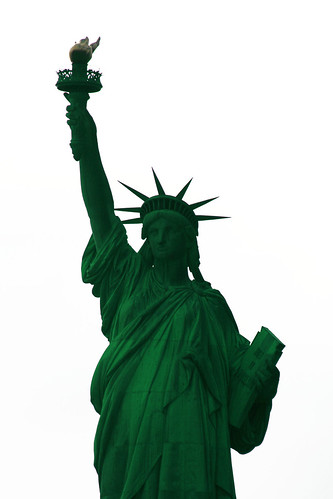Dec 16, 2008, 09:32 PM ET
The budget would tax digital downloads such as iTunes movies, TV shows and music and would end sales-tax exemptions on movie tickets, cable TV, satellite TV and radio, and entertainment and sporting events. All have been exempt from the state's sales tax.
But things quickly have reached crisis level in the Empire State: There's a $1.7 billion shortfall in the current budget and a deficit of nearly $14 billion for the next year. Most of that can be blamed on the economic crisis, which has reduced revenue the state receives from Wall Street.
"With the financial-services industry in the midst of an unprecedented crisis, we must fundamentally re-evaluate what our state can afford to spend," Paterson said.
Entertainment-related cuts are a small portion of the austerity and cutbacks announced Tuesday. It was not immediately clear whether the proposed budget would affect film and TV tax credits handed out by the state. New York state offers tax credits for film, TV and commercial production, investment-tax credits and sales-tax exemptions for film production activities and expenses.
New York City has its own tax credit, administered through the Mayor's Office of Film, Theatre and Broadcasting.
"New York City's 5% tax credit for qualified productions that shoot the majority of their project in the five boroughs is currently effective through 2011 and remains in place," MOFTB commissioner Katherine Oliver said.
The state office did not respond immediately to calls seeking comment.
But the state, facing a crushing budget deficit and a bleak outlook for jobs and tax revenue, would get needed revenue from entertainment-industry sales. One major new tax would come from closing what the state calls a "digital property taxation loophole."
"A book, song, album or movie would be subject to sales tax no matter if it was bought at a bricks-and-mortar store or downloaded online," according to Paterson's budget. The move is expected to bring in $15 million in 2009-10 and $20 million in 2010-11.
But that's small potatoes compared with other proposed new taxes. State taxes on cable and satellite TV and satellite radio would bring in $136 million in 2009-10 and $180 million in 2010-11. New York would be the 24th state to tax those services.
Entertainment spending taxes would raise $53 million in 2009-10 and $70 million in 2010-11, according to the budget. Thirty-one other states tax movies and musical events, but the National Association of Theatre Owners came out against New York's proposed levy.
"The best way to kill an economic recovery is heavy taxation, especially on things that remain affordable and popular in hard times like movie tickets," NATO vp Kendrick Macdowell said.
It is unclear what the tax rates would be, but they are likely to be hammered out by the state legislature and signed by Paterson by March 1, to take effect April 1.
Live your values. Love your country.
And, remember: TOGETHER, We can make a DIFFERENCE!






















No comments:
Post a Comment